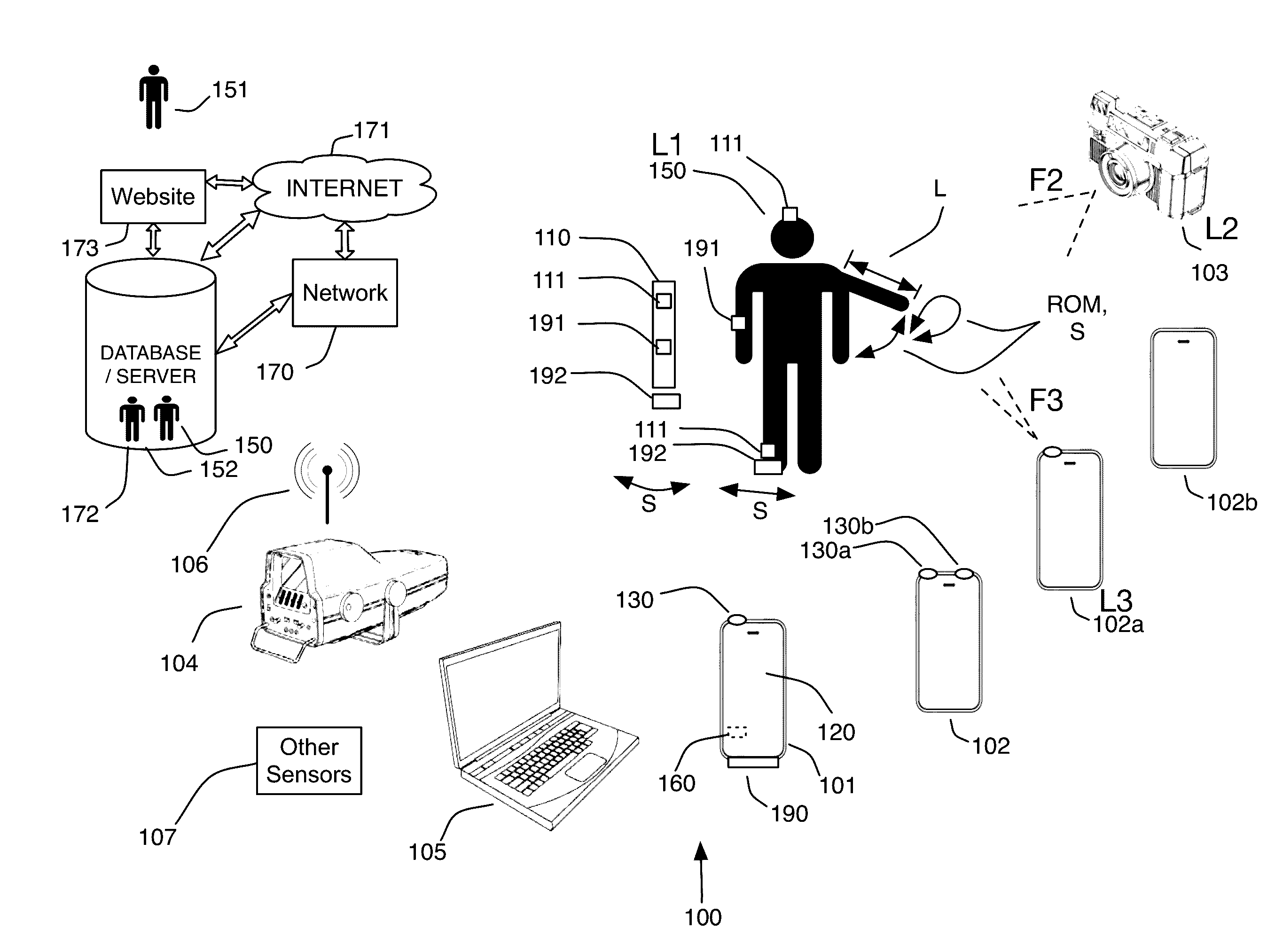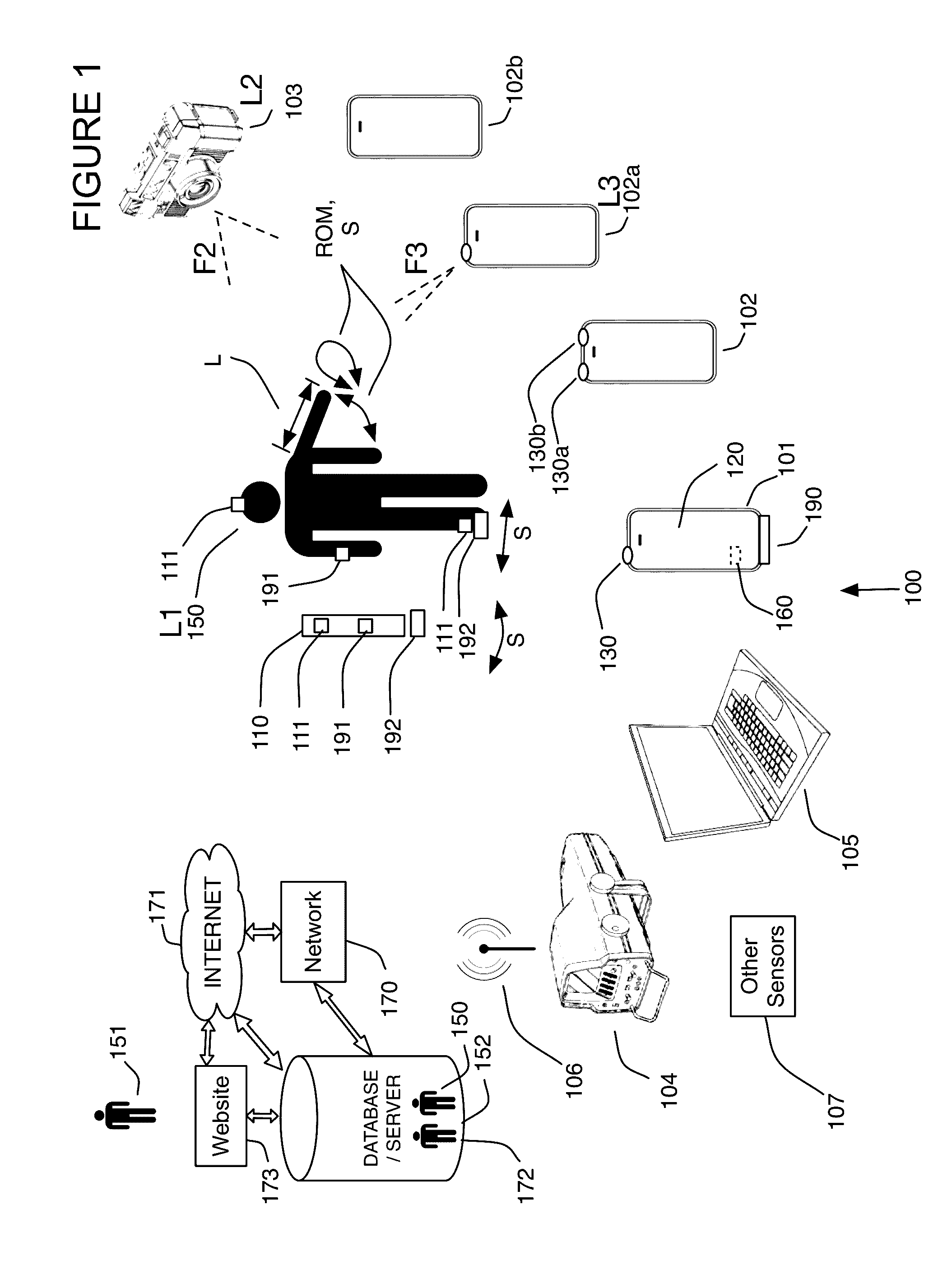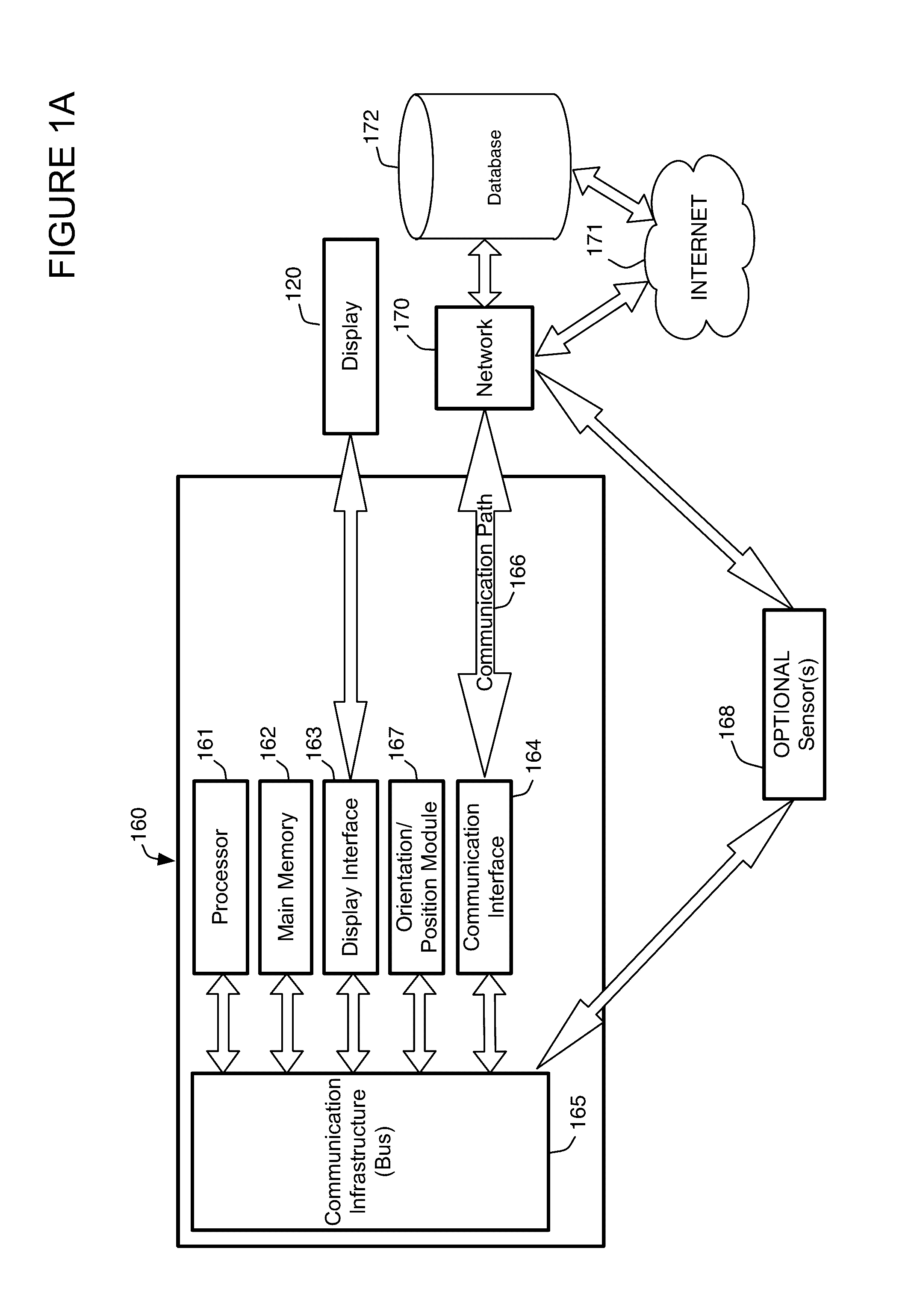Existing
motion capture systems process and potentially store enormous amounts of data with respect to the actual events of interest.
These systems do not intelligently confirm events using multiple disparate types of sensors or
social media or other non-sensor based information, including postings to determine whether an event has actually occurred, or what type of equipment or what type of activity has occurred.
Hence, capturing, transferring and storing non-event related data increases requirements for power, bandwidth and memory.
These systems are unable to monitor rotational accelerations or velocities and are therefore unable to detect certain types of events that may produce concussions.
In addition, many of these types of systems do not produce event related, connectionless messages for low power and
longevity considerations.
Hence, these systems are limited in their use based on their lack of robust characteristics.
Thus, it is difficult and
time consuming and requires manual labor to find, trim and designate particular motion related events for use in
virtual reality for example.
Hence, current systems do not easily enable a particular user to play against a previously stored motion event of the same user or other user along with a historical player for example.
Furthermore, known systems do not take into account cumulative impacts, and for example with respect to data mined information related to concussions, to determine if a series of impacts may lead to impaired
brain function over time.
This technique has various limitations including inaccurate and inconsistent subjective analysis based on video for example.
Known implementations utilize a stationary multi-camera system that is not portable and thus cannot be utilized outside of the environment where the system is installed, for example during an athletic event such as a golf tournament, football game or to monitor a child or elderly person.
These fixed installations are extremely expensive as well.
In addition, existing solutions do not contemplate mobile use, analysis and messaging and / or comparison to or use of previously stored
motion capture data from the user or other users or
data mining of large data sets of
motion capture data, for example to obtain or create motion capture data associated with a group of users, for example professional golfers, tennis players, baseball players or players of any other sport to provide events associated with a “professional level” average or exceptional
virtual reality opponent.
To summarize, motion capture data is generally used for immediate monitoring or sports performance feedback and generally has had limited and / or primitive use in other fields.
There are no known systems that allow for motion capture elements such as
wireless sensors to seamlessly integrate or otherwise couple with a user or shoes, gloves, shirts, pants, belts, or other equipment, such as a
baseball bat, tennis racquet,
golf club,
mouth piece for a boxer, football or soccer player, or protective
mouthpiece utilized in any other
contact sport for local analysis or later analysis in such a small format that the user is not aware that the sensors are located in or on these items.
In addition, for sports that utilize a piece of equipment and a ball, there are no known portable systems that allow the user to obtain immediate
visual feedback regarding ball
flight distance, swing speed, swing efficiency of the piece of equipment or how centered an
impact of the ball is, i.e., where on the piece of equipment the collision of the ball has taken place.
These systems do not allow for user's to play games with the motion capture data acquired from other users, or historical players, or from their own previous performances.
Known systems do not allow for
data mining motion capture data from a large number of swings to suggest or allow the searching for better or optimal equipment to match a user's motion capture data and do not enable original equipment manufacturers (OEMs) to make business decisions, e.g., improve their products, compare their products to other manufacturers, up-sell products or contact users that may purchase different or more profitable products.
In addition, there are no known systems that utilize motion capture
data mining for equipment fitting and subsequent point-of-sale
decision making for instantaneous
purchasing of equipment that fits an athlete.
Furthermore, no known systems allow for custom
order fulfillment such as assemble-to-order (ATO) for custom
order fulfillment of sporting equipment, for example equipment that is built to customer specifications based on motion capture data mining, and shipped to the customer to complete the point of sales process, for example during play or
virtual reality play.
In addition, there are no known systems that use a
mobile device and RFID tags for passive compliance and monitoring applications.
There are no known systems that enable data mining for a large number of users related to their motion or motion of associated equipment to find patterns in the data that allows for business strategies to be determined based on heretofore undiscovered patterns related to motion.
There are no known systems that enable obtain
payment from OEMs, medical professionals, gaming companies or other end users to allow data mining of motion data.
In addition, the references do not contemplate a multi-sensor environment where other sensors may not observe or otherwise detect an event, while the sensor data is still valuable for obtaining
metrics, and hence the references do not teach saving
event data on other sensors after one sensor has identified an event.
There are no known systems that analyze data from
motion sensors, video,
radar, or other sensors to automatically select one or more tags for an
event based on the data.
 Login to View More
Login to View More 


